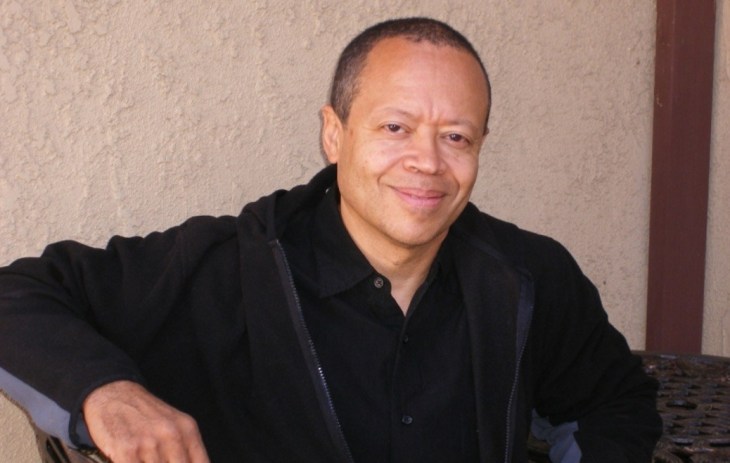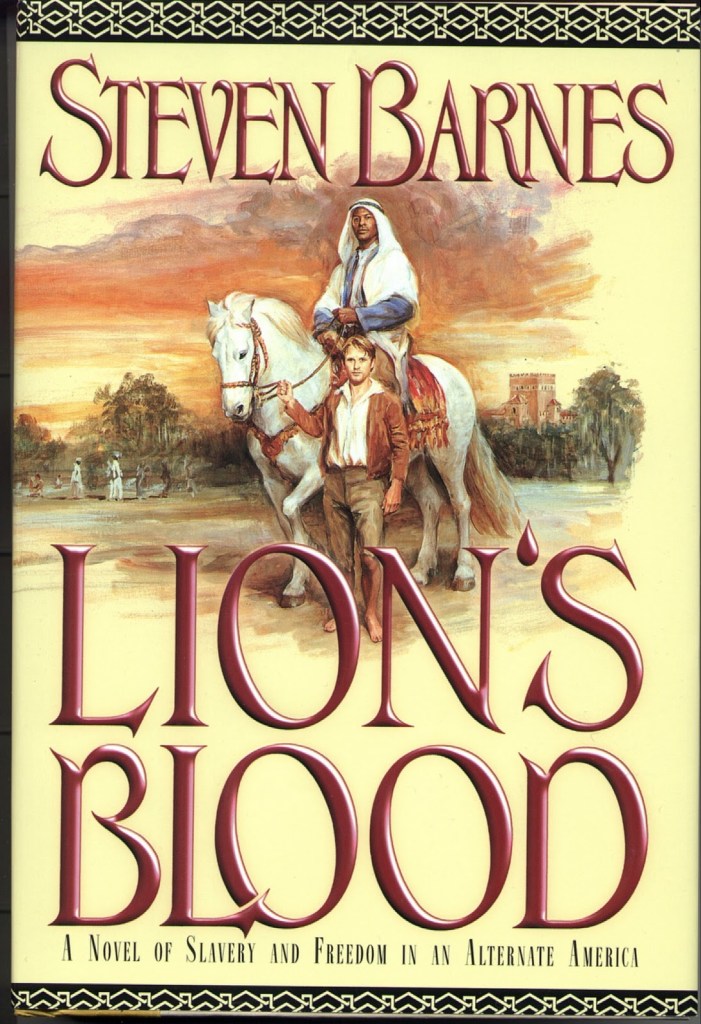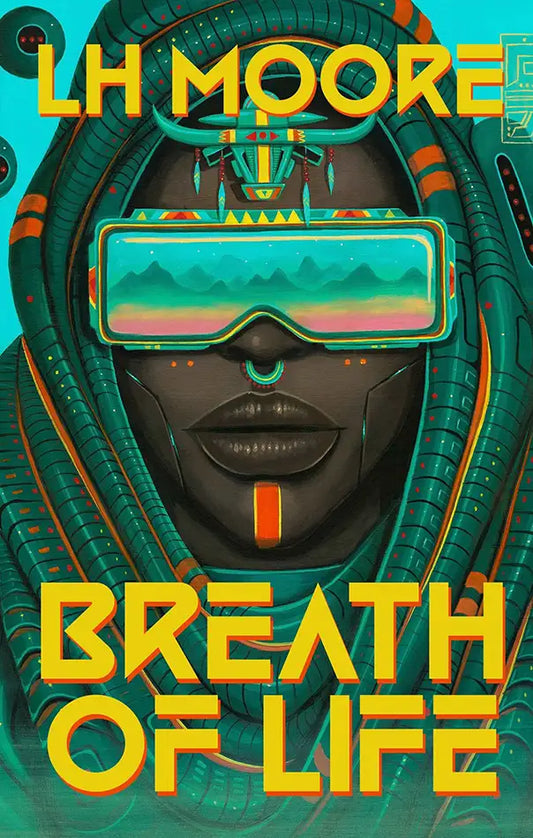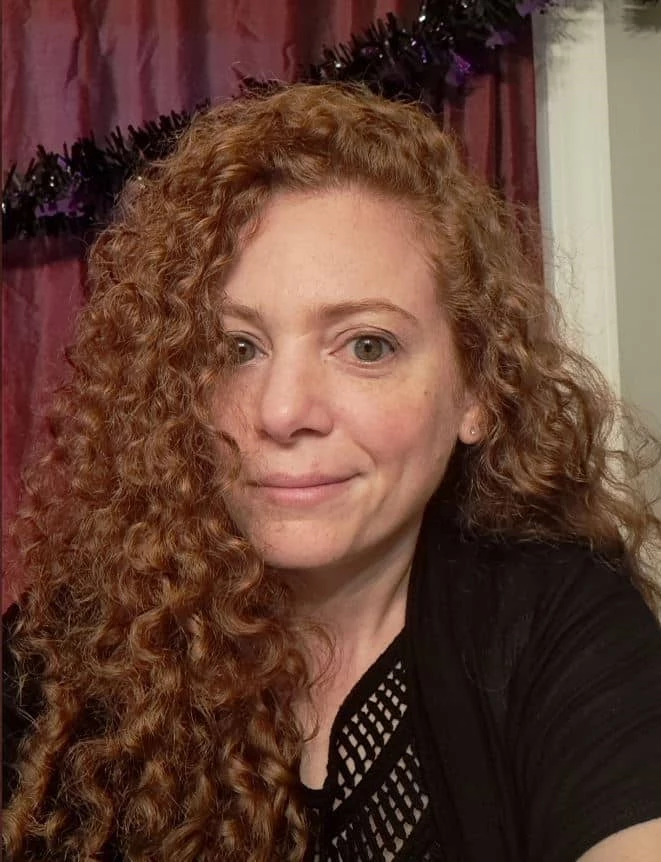
I had to read Steven Barnes’s “Fugue State”—co-written with Tananarive Due—a few times to realize it was a dark horror story. On first blush, I thought this was a tragedy—a story about a woman whose once brilliant husband now suffers from dementia. If that was all the story was about, yes, it would be a tragedy. But there’s a lot more going on, and Charlotte herself doesn’t even want to talk about it. She doesn’t want to talk about her husband’s obsession with an evangelical preacher who has a cult-like following, and she certainly doesn’t want to talk about the man who was killed in a car crash minutes after speaking to her in a diner. It’s easy to avoid thinking about things when you’re avoiding talking about them.
So yes, this is a horror story. It’s about the person you most love, forgetting who they are. It’s about counting down the days until that person forgets you too. It’s about how easy it really is to fall under the spell of … something, and to never know if you did it willingly or not. There is an entire list of things I am afraid of in this story, and, like Charlotte, I’m going to avoid talking too closely about them. Just go read the story, make your own list of the things you see that scare you, and we can compare notes on social media.
Another thing I’m interested in discussing with our readers is what they think happens after this story ends. Charlotte and Arthur’s relationship has healed, and they can now relate to each other and appreciate each other, but at what cost? What is Reverend Pike’s “secret power,” and how far will these changes go? I can try to pull the fear out of the conversation by saying that maybe there isn’t anything to be afraid of, maybe this is the way of the future, maybe I’m fighting against something that just wants to help me be a better, more loving person (and who hasn’t wanted to be a better partner?). Like I said, I can try to pull the fear out. If I drink my own Kool-Aid, I’m just another Reverend Pike cheerleader, and that’s pretty terrifying too.
So yes, read, think about it, read again, chat with me in the comments or on the socials. I need to know what you think of this story!!
Steven was kind enough to chat with me about what inspired “Fugue State,” writing alongside his wife author and teacher Tananarive Due, adapting a number of her standing room only seminars into a widely available series of writing and publishing classes, how much fun it was to prank her students by sneaking Jordan Peele into the lecture hall, and more.
Steven Barnes has been publishing science fiction for forty years, including the Dream Park series co-written with Larry Niven, and the The Tennyson Hardwick mystery series co-written with Blair Underwood and Tananarive Due. He’s written screenplays, Star Wars and Star Trek tie-in novels, comic books, you name it. In his decades long career, Barnes has seen it all and done it all (and is now teaching it all!). The man is a trove of knowledge and experience, and it was truly an honor to have the opportunity to interview him.

APEX MAGAZINE: What a great story! I love how at the beginning, Charlotte knows what happened to Arthur, but the reader doesn’t. Those first few pages, I thought Arthur was suffering from dementia. And Charlotte seemed to be avoiding talking about it, like to speak it would cement it as truth. What inspired this story?
STEVEN BARNES: It was actually an experiment. We did a course called “write a Halloween story in a month with a sentence a day” and to prove we weren’t cheating, we had students generate the ideas. It was a four-part class. In the first week, we had people brainstorm things they were afraid of. We generated about two dozen ideas, among them the rise in evangelical religion, and another the fear of losing your mind. Those wound together into the core notion of “Fugue State.”
AM: You co-wrote “Fugue State” with your wife, Tananarive Due, and this is a story about a husband and wife. Is there anything of you and Tananarive in Arthur and Charlotte?
SB: Not really, except the love and fear of loss.
AM: You’ve co-written a lot of fiction in your career, is it different to write with your spouse, as opposed to someone you are not that close with? Did you and Tananarive run into any scenes you had written for “Fugue State” where you said to yourselves “well, that hits close to home!”?
SB: Maybe. I mean you have arguments and stresses inside your own mind, so it is inevitable that in a close relationship there will be issues as well. But the deep sense of despair is probably more extracted from memories of past relationships.
AM: In an interview you did with Lightspeed Magazine in 2017, you spoke extensively about concepts that cannot be put into words, concepts that can be understood but not taught. I happily concede to being fascinated by all of this! Which leads me to wonder: Is Arthur losing his words and his vocabulary, or is he leaving them behind as one would a tool that is no longer useful?
SB: What a great question! I think that another story might touch on such things, but in this case we were dealing with a diminishment of mental capacity rather than an expansion. But as I said … I could see taking that another way.
AM: I’m fascinated, creeped out by, and terrified by Reverend Pike. What is his goal? Where did the idea for him come from?
SB: You take an evangelical preacher with a divine vision, and you could easily get a mass movement. Add the power to create a genuine miracle, and you have the recipe for one hell of a problem. I think the Reverend is sincere … and quite mad.
AM: Many years ago, I was introduced to your work through The Barsoom Project, which you co-wrote with Larry Niven (at the time I acquired the book, I had no idea it was the 2nd in a series). Over your decades long career, you’ve done a lot of co-writing with Larry Niven, and other authors. What did the experience of co-writing teach you about your own writing? How is writing novels with another author different than writing on your own?
SB: Larry was my mentor. I needed someone to help me into the industry. So there were elements of business and craft involved in that, and I could fill a book with the technical aspects, especially the classic structures of science fiction, at which he was a 20th Century master. Writing with Larry has always been a mentor-student relationship, even after I was a professional: I really enjoy that relationship, either teaching or learning, and get a vast amount from it. So when I work with him, we usually plot out the novel together and then I write first draft a chunk at a time. Then we go over it and re-write together. Larry says that we each do 80% of the work, and I think he’s right.
With Tananarive, it’s different. While we plot them out together, one or the other takes first draft position: you can tell by whose name comes first in the title.
When I’m working alone, I use the same process used in collaboration: brainstorm, plot, outline, write a first draft in script form, check to see that it works and then flesh it out. I really like that, because while a book takes about a year to write, the first script version can be finished in a couple of months: it has only structure, characters, and dialogue. If that spine works, then converting it to prose and polishing the language is just a joy, and flows like a river.

AM: You’ve written short stories, novels, comic books, television episodes, and television series. Do you have a favorite medium to write in?
SB: I really, really want to do more in visual media. My career got “interrupted” by almost twenty years of family issues. I want to see if I can work my way back into Hollywood, and that’s the goal right now.
AM: What are some of your favorite concepts and/or themes to write about?
SB: The aspect of science I’m most interested in is human mental and physical development. Martial arts, meditation, mind dynamics, and things of that nature. But additionally, for twenty years, I was about the only black male science fiction writer in the world (Samuel Delaney had retired from the field, but Octavia Butler was a close friend) so avoiding social issues would have been cowardice. So … that too. My belief is that the most important thing we need to heal the wounds of the past is honesty about what happened, and the impact of centuries of horror. Books like Lion's Blood touch on that.
AM: Your creativity and passion does not stop at writing fiction! You teach the Afrofuturism class with Tananarive, and you teach a series of seminars on how a person can change their life for the better. First question is where do you find the energy for creating and building all of these seminars, and second question is how do you decide what material and information to include in the classes?
SB: I cultivate energy carefully: exercise, rest, eating properly. I love “Intermittent Fasting” which is basically eating every other day. The cascade of positive effects is astounding. But then you have to focus and align that energy, use it as carefully as possible. I don’t have the endless energy I had in my 20’s, but I have all the energy I need because I know how to use it, how to motivate myself and make every day count.
Most of what I teach is an answer to the question: what do I wish I’d known when I was twenty? That might be the tools of writing, or dealing with fear, or finding and nurturing love. Understanding the speculative fiction of the African Diaspora—all that others have created until now, so that I have a better sense of where it is all going and what I can contribute. Aspects of business: in any profession you are paid less for the quality of your work than what you can market or negotiate. Critical to understand that: artists make that mistake constantly.
Tananarive teaches academically at UCLA and elsewhere, so she can test the material in front of a live audience. Standing room only; she’s brilliant, and most of her students end up feeling like she’s the best teacher they’ve ever had. Her black horror class “The Sunken Place” is an absolute joy, and the day we snuck Jordan Peele in to surprise them was one of the best and funniest things I’ve ever seen. So we take her academic approach, her deep love of genre and mastery of craft, combine it with my forty years in the business, and create online classes that are designed to bump up students from one level of their career—whatever that is—to the next.
Your readers can get a free taste of that with my “A book a year with a sentence a day” lecture at www.lifewritingsentence.com, or see more about the Black Horror class at www.sunkenplaceclass.com
Thanks so much for the opportunity to talk to your readers!
AM: It was my pleasure to get to interview you. Thank you so much for your time!









